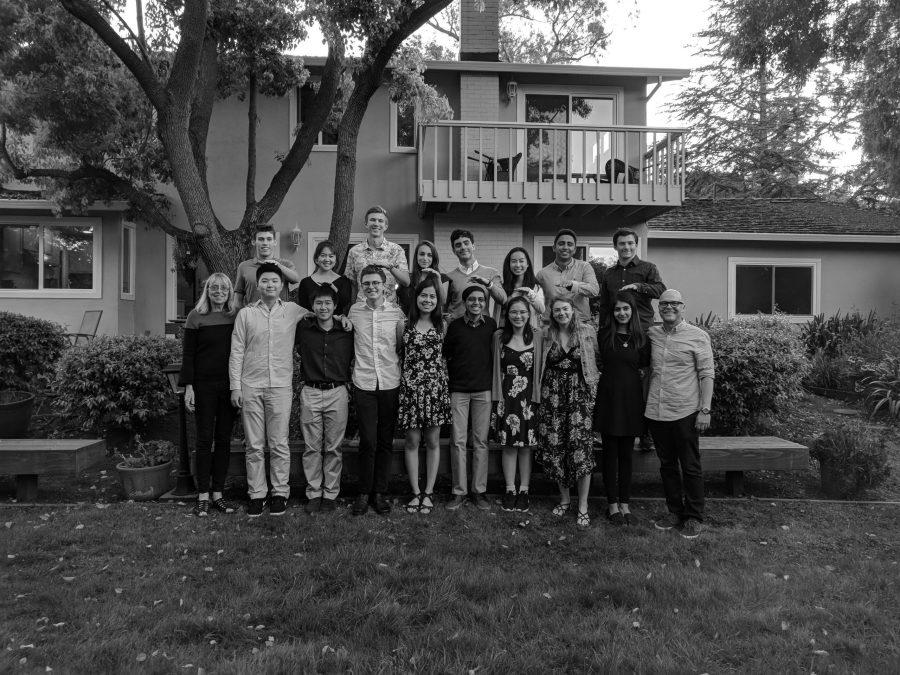In May 2005, Karishma Oza faced a difficult decision: accept the Editor-in-Chief position after just one year on The Campanile staff or continue her basketball career, a sport which she loved and had dedicated many years of her life to.
“After deep soul-searching, many tears and a career counseling session with (The Campanile co-adviser Esther Wojcicki), I ultimately gave up basketball,” Oza said. “Looking back, this was, indeed, the right choice. The aspects of basketball that I thought I’d miss — camaraderie, teamwork, (accomplishing) something incredible together, friendship — were actually all present in the journalism lab.”
In addition to working towards a common goal and building lasting bonds with her peers, Oza said her time on The Campanile staff challenged her intellectually, too, forcing her to regularly make time-sensitive decisions under pressure.
“In my first month as an editor, we received news that rocked our community, our school (and) our classroom,” Oza said. “A middle school physical education teacher was accused of a sexual relationship with a minor.”
According to Oza, the teacher’s son wrote for The Campanile, adding an additional layer of complexity to their approach to reporting the news.
“After a multiple-day impassioned debate involving all the editors and eventually Woj, we decided to print the news,” Oza said. “None of the editors had ever had to make a real-world decision like this before.”
Oza said these shared experiences improved her ability to collaborate, despite the editors’ sometimes dichotomous viewpoints on a given issue.
“I recall thinking of us like Supreme Court judges; we had liberal, moderate and conservative decision-makers,” Oza said.
These disputes, however, made her more equipped to handle different situations, according to Oza. After graduating from the University of North Carolina at Chapel Hill with a master’s degree in Public Health, she joined a cancer research center, where she worked to make medical treatment more accessible to the deaf.
“I thrived in anthropology courses and in qualitative research because of years of experience interviewing people, hearing their stories, sharing their truths,” Oza said. “I use design and storytelling principles in my daily work as a public health professional through data dashboards, grant reports and applications, along with print (and) online educational resources.”
Ashley Zhang, who served as Editor-in-Chief during the 2017-18 school year, said her experience not only developed crucial skills such as writing and but also changed the way she responds to difficult situations.
“(The Campanile) taught me how to think on my feet in a fast-paced environment, handle criticism gracefully and pay meticulous attention to detail,” Zhang said. “More broadly, it’s shown me how students are more capable of far more than we often believe, and we shouldn’t let age bar us from attempting anything.”
Since graduating from Paly, Zhang has continued to pursue journalism — first at the Pulitzer Center on Crisis Reporting in Washington D.C., then at The Daily Trojan, the University of Southern California’s newspaper.
“As cheesy as it sounds, the feeling of rushing into the (Media Arts Center) on Fridays to distribute the papers is something I’ll always treasure,” Zhang said. “There are few things more rewarding than holding a physical copy of something you put so much labor and love into creating.”
Recently, USC paid Zhang to contribute to the USC Beacon Project, which employs both students and professional investigative journalists to shed light on the Varsity Blues college admissions scandal.
“Being on Campy was the springboard to many incredible opportunities during and after high school,” Zhang said. “I’d never considered journalism as a potential career path prior to joining The Campanile, and it’s now something I could envision myself doing for the rest of my life.”
In contrast, Paly alumna Nanor Balabanian chose not to pursue journalism in favor of entering the nonprofit sector.
“I formed a nonprofit to aid Armenia, later on I got my Masters in Education from Stanford and became a history teacher in East Palo Alto,” Balabanian said. “I never imagined doing these things as a high schooler.”
Balabanian said her experience writing for The Campanile demonstrated to herself that she could effect meaningful change, in the community and beyond.
“Getting my first article published when I had just moved from Lebanon and had never experienced anything like this,” Balabanian said. “I was able to write about the lack of the U.S. government in recognizing the Armenian genocide and the importance of doing so.”
After graduating from Paly, Balabanian attended the University of California, Santa Barbara, double-majoring in Political Science and International Relations, Balabanian said her experience shaped the trajectory of the rest of her life.
“The Campanile definitely had a role in reminding me that I had a voice and I had to speak up about issues that mattered,” Balabanian said. “Later on in life, my goal became to educate and inspire others to do the same.”



